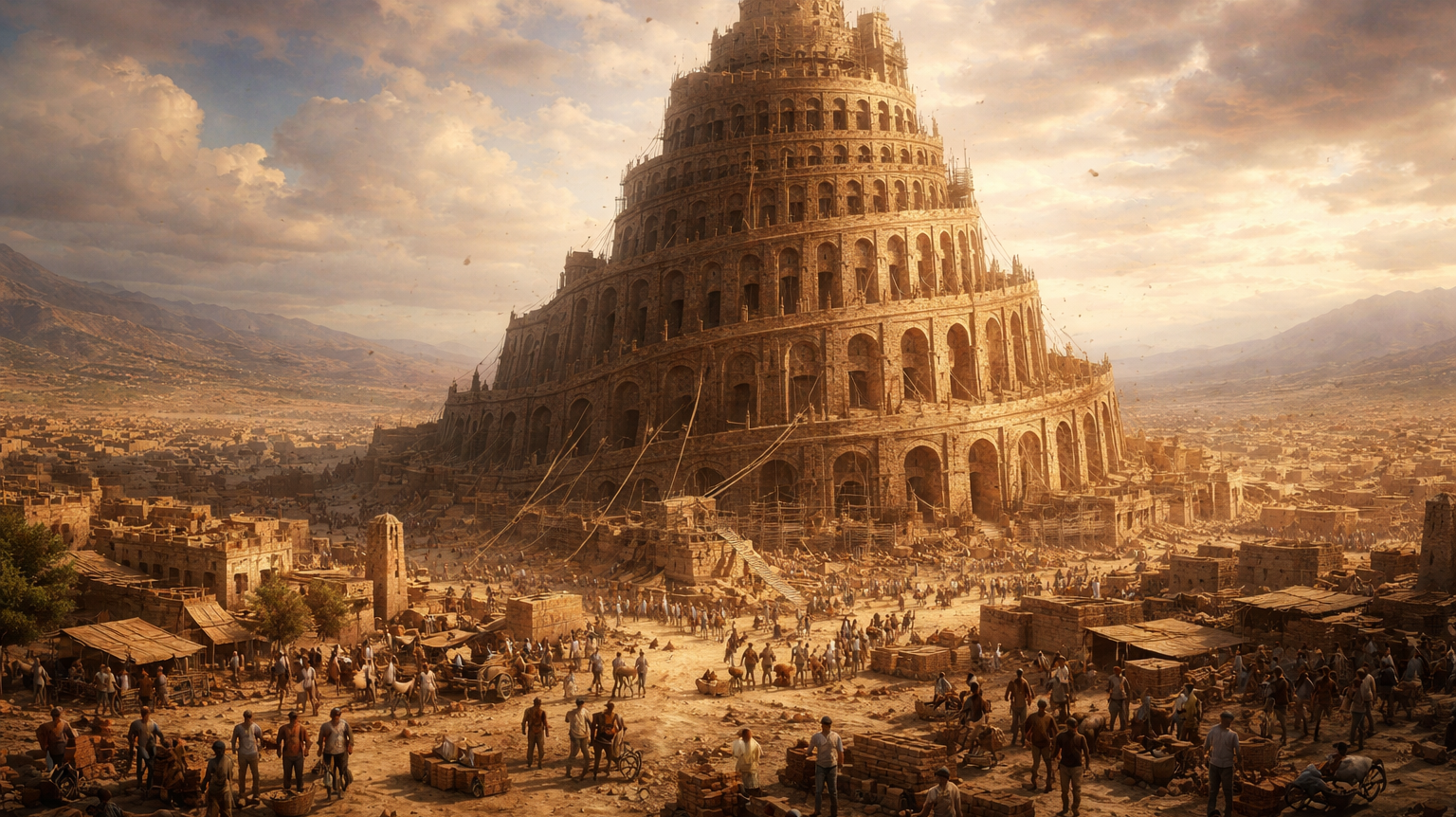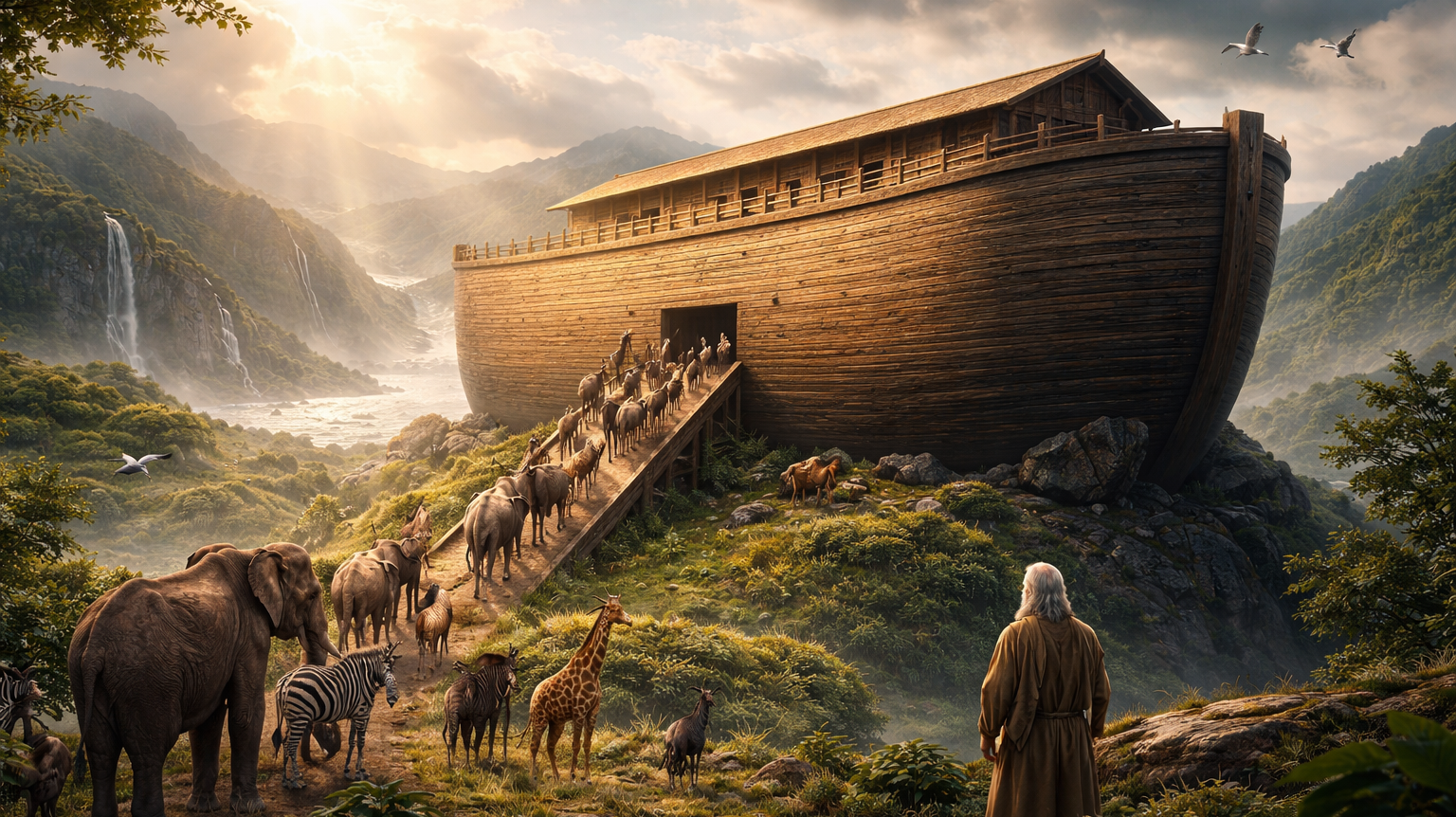The Bible is filled with locations that hold deep spiritual, historical, and symbolic significance. From the Garden of Eden to the New Jerusalem, these places serve as settings for some of the most important events in biblical history. Below is a list of 25 significant places in the Bible, along with their meanings and importance.
1. Garden of Eden
The Garden of Eden was the paradise where God placed Adam and Eve (Genesis 2:8-14). It was a place of perfect harmony until sin entered the world through their disobedience.
2. Mount Ararat
Mount Ararat is traditionally believed to be where Noah's ark came to rest after the flood (Genesis 8:4). It symbolizes God's judgment and mercy.
3. Tower of Babel
Located in Shinar, the Tower of Babel represents human pride and the origin of different languages (Genesis 11:1-9).
4. Ur of the Chaldeans
The birthplace of Abraham (Genesis 11:31), Ur was a city in Mesopotamia. God called Abraham to leave Ur and follow Him to a new land.
5. Canaan
The land God promised to Abraham and his descendants (Genesis 12:5). It later became the homeland of the Israelites.
6. Sodom and Gomorrah
These cities were destroyed by God due to their great wickedness (Genesis 19:24-25). They serve as warnings against sin and judgment.
7. Mount Moriah
The place where Abraham was willing to sacrifice Isaac (Genesis 22:2). Later, it became the site of Solomon’s Temple in Jerusalem.
8. Goshen
The region in Egypt where the Israelites lived before the Exodus (Genesis 45:10). It was a place of prosperity before their enslavement.
9. Red Sea
God parted the Red Sea to allow the Israelites to escape from Pharaoh’s army (Exodus 14:21-22). This miracle represents deliverance and faith.
10. Mount Sinai
The mountain where God gave Moses the Ten Commandments (Exodus 19:20). It is a symbol of God’s law and covenant.
11. Jericho
The first city conquered by the Israelites in the Promised Land (Joshua 6:1-20). The walls fell after the Israelites marched around them in obedience to God.
12. Jordan River
A significant biblical river where the Israelites crossed into the Promised Land (Joshua 3:14-17) and where Jesus was baptized (Matthew 3:13-17).
13. Shechem
A place of many biblical events, including the renewal of the covenant (Joshua 24:1-25). It was also where Joseph's bones were buried (Joshua 24:32).
14. Shiloh
The first major religious center of Israel, where the Ark of the Covenant was kept (Joshua 18:1).
15. Bethlehem
The birthplace of King David (1 Samuel 16:1) and Jesus Christ (Luke 2:4-7).
16. Mount Carmel
Elijah confronted the prophets of Baal here, proving God’s power (1 Kings 18:19-40).
17. Nineveh
The capital of Assyria, known for its wickedness. Jonah was sent by God to preach repentance there (Jonah 1:2).
18. Babylon
A powerful empire that conquered Jerusalem and took the Israelites into exile (2 Kings 25:1-12). It represents both judgment and restoration in prophecy.
19. Jerusalem
The holy city where the Temple was built, Jesus was crucified, and where He will return (Revelation 21:2).
20. Mount of Olives
A significant place in Jesus’ ministry, including His ascension into heaven (Acts 1:9-12).
21. Gethsemane
The garden where Jesus prayed before His arrest (Matthew 26:36-46). It represents suffering and obedience.
22. Calvary (Golgotha)
The site of Jesus’ crucifixion (Luke 23:33). It is the ultimate place of redemption.
23. Emmaus
The village where Jesus appeared to two disciples after His resurrection (Luke 24:13-35).
24. Sea of Galilee
The setting of many miracles, including Jesus walking on water (Matthew 14:25-33) and calming the storm (Mark 4:39).
25. New Jerusalem
The eternal city where God will dwell with His people (Revelation 21:1-4). It represents the final restoration and glory of God’s kingdom.
These places are not just historical locations but also spiritual landmarks that carry deep meaning for believers. They remind us of God's faithfulness, judgment, mercy, and ultimate plan for salvation.
























